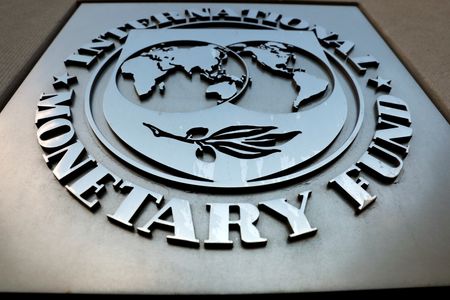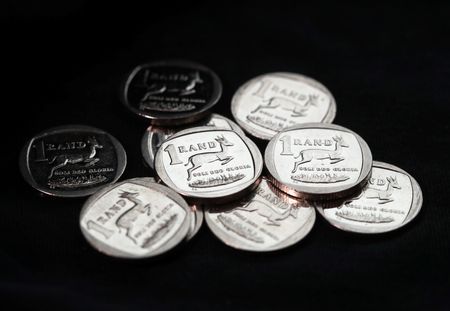By Trixie Yap
(Reuters) -Oil prices slipped on Tuesday as concerns eased about the fallout from Syrian President Bashar al-Assad’s overthrow, but the market found support in China’s vow to ramp up policy stimulus, which could boost the top global crude buyer’s demand.
Brent crude futures fell 26 cents, or about 0.4%, to $71.88 per barrel. U.S. West Texas Intermediate crude futures were down 30 cents, also 0.4% lower, at $68.07 at 0707 GMT. Both benchmarks climbed more than 1% on Monday.
“The tensions in the Middle East seem contained, which led market participants to price for potentially low risks of a wider regional spillover leading to significant oil supply disruption,” said IG market strategist Yeap Jun Rong.
Syria’s rebels were working to form a government, restore order after Assad ouster with the country’s banks and oil sector set to resume work on Tuesday.
While Syria itself is not a major oil producer, it is strategically located and has strong ties with Russia and Iran, and regime change could raise regional instability.
The power transfer followed 13 years of civil war and brought an end to over 50 years of brutal rule by the Assad family.
The market is also focused on the likelihood of a rate cut by the U.S. Federal Reserve next week, which could boost oil demand in the world’s biggest economy.
The Fed is expected to cut rates by 25 basis points at the conclusion of its meeting on Dec. 17-18, but traders are waiting to see if inflation data this week could derail that outlook.
“Oil markets have been a function of demand more than supply-side narratives this year and as a result, investors are hesitant to take speculative positions in oil ahead of key policy decisions from the Fed,” said Phillip Nova senior market analyst Priyanka Sachdeva.
Declines were capped by positive expectations on China’s economy, following reports that China will adopt an “appropriately loose” monetary policy next year – the first easing of its stance in some 14 years, to spur economic growth in the world’s top oil importer.
While market hopes are high for aggressive policy stimulus, oil price gains may be limited until there is more clarity on what impact Beijing’s measures will have on the country’s crude demand outlook, IG’s Yeap said.
In a positive sign, China’s crude oil imports jumped in November from a year earlier in the first annual growth in seven months, data showed on Tuesday, as lower prices of Middle East supplies and stockpiling demand boosted buying.
(Reporting by Katya Golubkova and Trixie Yap; Editing by Himani Sarkar and Sonali Paul)











